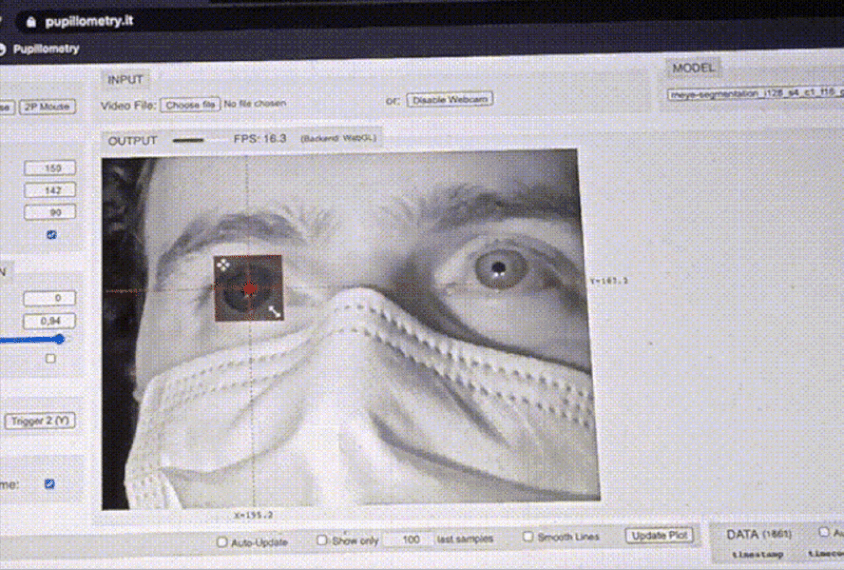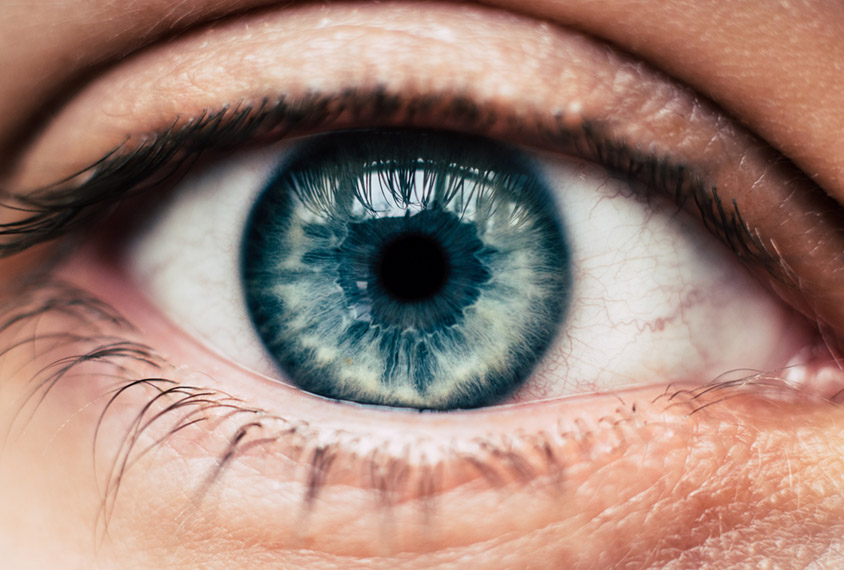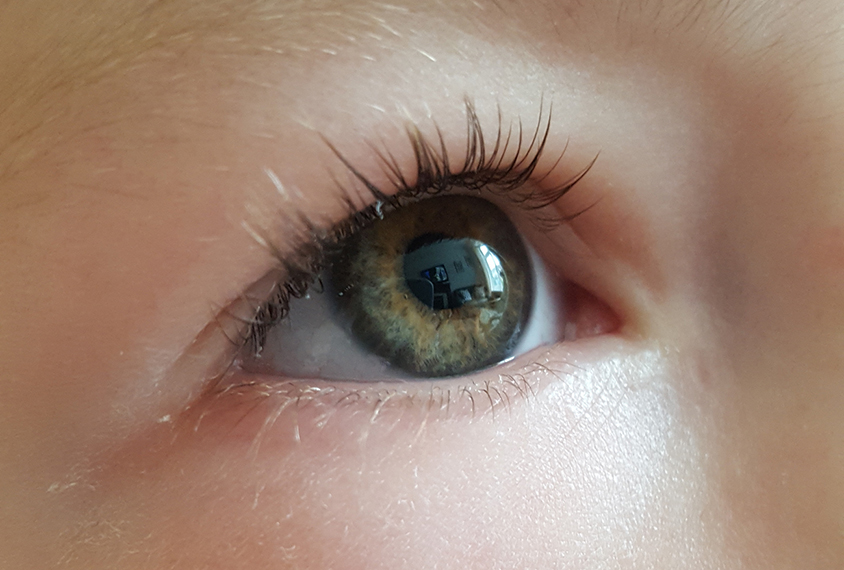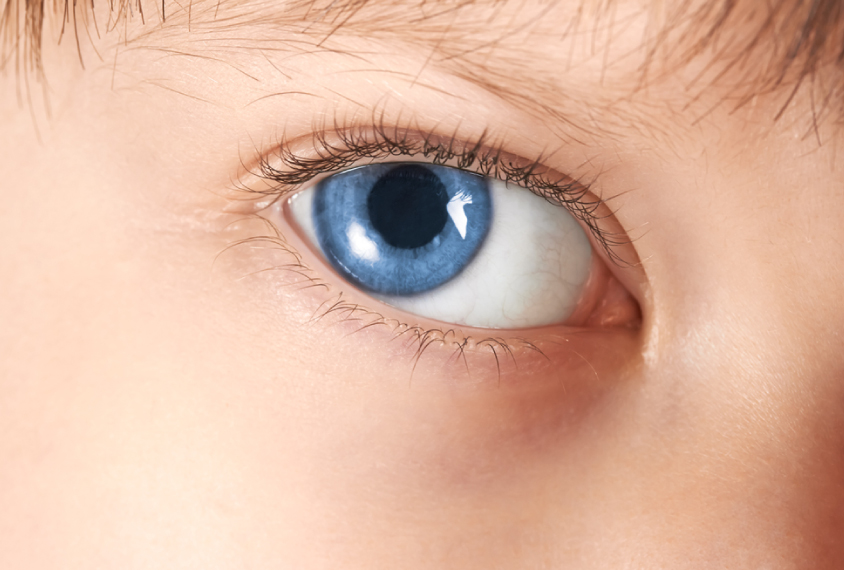Pupillometry
Recent articles
Web app tracks pupil size in people, mice
The app relies on artificial intelligence and could help researchers standardize studies of pupil differences in autistic people and in mouse models of autism.

Web app tracks pupil size in people, mice
The app relies on artificial intelligence and could help researchers standardize studies of pupil differences in autistic people and in mouse models of autism.
Mice reveal roots of sensory issues tied to top autism gene
Mice with mutations in the autism-linked gene SYNGAP1 have trouble sensing touch, which may stem in part from brain-circuit alterations and dulled alertness.
Mice reveal roots of sensory issues tied to top autism gene
Mice with mutations in the autism-linked gene SYNGAP1 have trouble sensing touch, which may stem in part from brain-circuit alterations and dulled alertness.
INSAR 2020, from home
Like so many other events this year, autism’s biggest annual conference — the International Society for Autism Research meeting — was forced to go virtual because of the coronavirus pandemic.

INSAR 2020, from home
Like so many other events this year, autism’s biggest annual conference — the International Society for Autism Research meeting — was forced to go virtual because of the coronavirus pandemic.
Autistic people may have trouble tuning out distractions
Pupil response suggests autistic people have atypical activity in a part of the brain that regulates attention.

Autistic people may have trouble tuning out distractions
Pupil response suggests autistic people have atypical activity in a part of the brain that regulates attention.
Pupillary reflex in infancy may yield clues to autism
The pupils of babies later diagnosed with autism shrink more in response to light than those of their typical peers.

Pupillary reflex in infancy may yield clues to autism
The pupils of babies later diagnosed with autism shrink more in response to light than those of their typical peers.
Autism unsurprised; diagnostic camouflage; Neanderthal legacy and more
People with autism aren’t easily surprised, the social camouflage some girls and women with autism use may preclude diagnosis, and autism-related genes are rooted deep in human ancestry.
Autism unsurprised; diagnostic camouflage; Neanderthal legacy and more
People with autism aren’t easily surprised, the social camouflage some girls and women with autism use may preclude diagnosis, and autism-related genes are rooted deep in human ancestry.
Delayed pupil response to light may be early sign of autism
The pupils of preschoolers with autism are slow to constrict in response to light, a phenomenon that may serve as an early marker of autism risk.

Delayed pupil response to light may be early sign of autism
The pupils of preschoolers with autism are slow to constrict in response to light, a phenomenon that may serve as an early marker of autism risk.
Shrinking pupils may mirror autism risk in babies
The pupils of 10-month-old infants who have a sibling with autism constrict unusually fast in response to flashes of light, hinting that this reflex could be an early sign of the disorder.

Shrinking pupils may mirror autism risk in babies
The pupils of 10-month-old infants who have a sibling with autism constrict unusually fast in response to flashes of light, hinting that this reflex could be an early sign of the disorder.
Controversial study uncovers hearing glitch in autism
An ear muscle is more sensitive to loud sounds in children with autism than in controls, according to a study published 3 July in Autism Research. The researchers say this measure could serve as a clinical biomarker of the disorder, but others fiercely disagree.

Controversial study uncovers hearing glitch in autism
An ear muscle is more sensitive to loud sounds in children with autism than in controls, according to a study published 3 July in Autism Research. The researchers say this measure could serve as a clinical biomarker of the disorder, but others fiercely disagree.
Study links pupillary reflex, heart rate in autism
More than half of children with autism have a delayed pupillary response to light, along with a high heart rate and other physiological features, according an unpublished study presented Thursday at the 2013 International Meeting for Autism Research in San Sebastián, Spain.

Study links pupillary reflex, heart rate in autism
More than half of children with autism have a delayed pupillary response to light, along with a high heart rate and other physiological features, according an unpublished study presented Thursday at the 2013 International Meeting for Autism Research in San Sebastián, Spain.
Explore more from The Transmitter
New autism committee positions itself as science-backed alternative to government group
The Independent Autism Coordinating Committee plans to meet at the same time as the U.S. federal Interagency Autism Coordinating Committee later this month—and offer its own research agenda.

New autism committee positions itself as science-backed alternative to government group
The Independent Autism Coordinating Committee plans to meet at the same time as the U.S. federal Interagency Autism Coordinating Committee later this month—and offer its own research agenda.
Two neurobiologists win 2026 Brain Prize for discovering mechanics of touch
Research by Patrik Ernfors and David Ginty has delineated the diverse cell types of the somatosensory system and revealed how they detect and discriminate among different types of tactile information.

Two neurobiologists win 2026 Brain Prize for discovering mechanics of touch
Research by Patrik Ernfors and David Ginty has delineated the diverse cell types of the somatosensory system and revealed how they detect and discriminate among different types of tactile information.
Shifting neural code powers speech comprehension
Dynamic coding helps explain how the brain processes multiple features of speech—from the smallest units of sounds to full sentences—simultaneously.

Shifting neural code powers speech comprehension
Dynamic coding helps explain how the brain processes multiple features of speech—from the smallest units of sounds to full sentences—simultaneously.